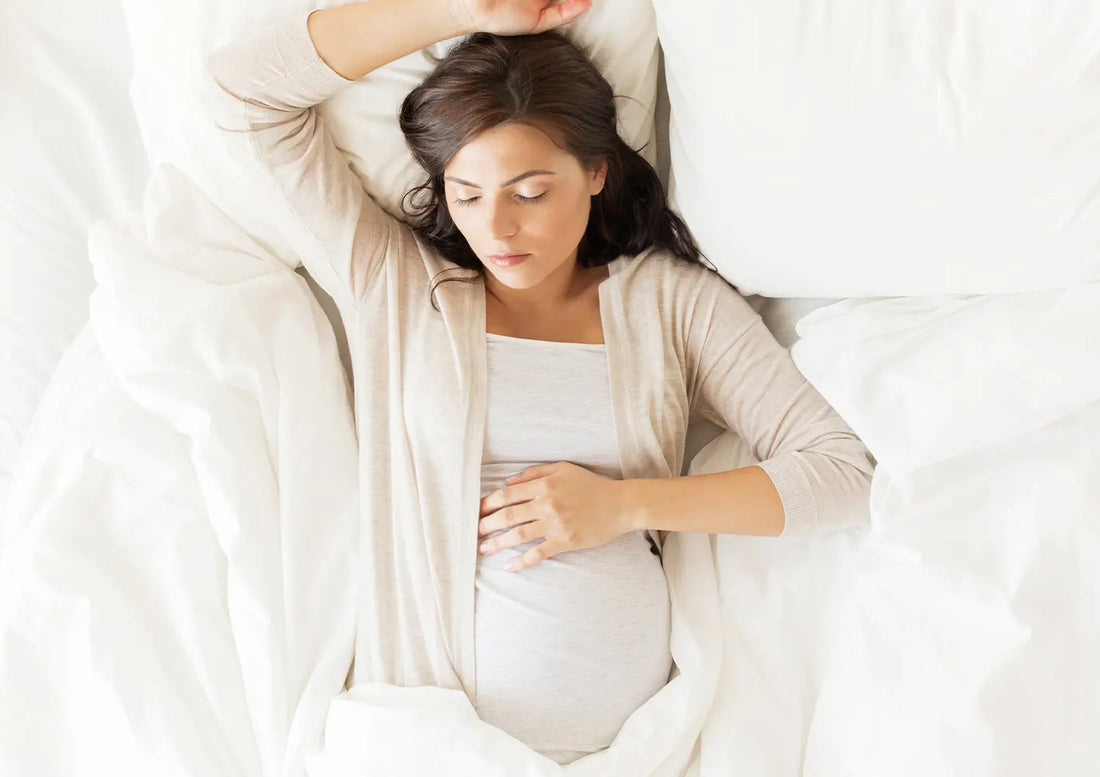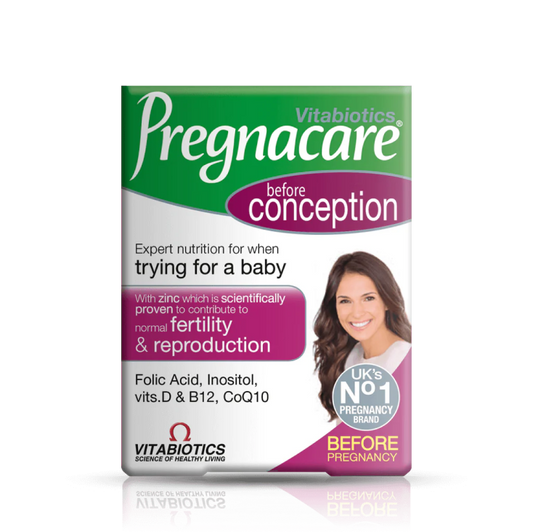What is insomnia during pregnancy?
Are you struggling with insomnia during pregnancy?
We look at the causes of insomnia in early pregnancy and how to treat it so you can sleep well during pregnancy.
Pregnancy is an exciting time, but it can also be incredibly tiring. You'll likely need a lot more sleep, from daytime naps to going to bed much earlier than usual.
Difficulty falling asleep during pregnancy can also be common. If you regularly struggle to fall asleep while expecting, you may be suffering from pregnancy insomnia.
If you're craving more sleep, help is at hand. Here are some simple tips for treating insomnia and coping with pregnancy insomnia.
What is pregnancy insomnia?
Insomnia is defined by the NHS as regular sleep problems. These problems can include difficulty falling asleep at night, waking up regularly or being unable to sleep through the night, and waking up too early each morning.
You're not alone – pregnancy insomnia or sleep problems are common when you're expecting a baby.
What are the causes of pregnancy insomnia?
Pregnancy insomnia can have many causes, including some of the hormonal and physical effects of pregnancy.
Sleep disorders most often appear in the early stages of pregnancy, mainly due to the significant hormonal and emotional changes that occur during this period.
Insomnia in pregnancy is also common during the third trimester, due to the rapid physical development at this stage, as well as the difficulty in getting comfortable with a growing belly and an active baby who seems to wake up as soon as their head hits the pillow.
Insomnia in the third trimester of pregnancy can be frustrating because it strikes just when you need a good night's sleep the most, especially as you want to prepare for sleepless nights after your baby is born.
Sleep problems during pregnancy can also be a result of stress and anxiety, such as worries about childbirth and the changes that parenthood will bring to your life.
How to Treat Insomnia During Pregnancy – Try These Tips
Can insomnia be cured during pregnancy? How can you ensure good sleep during pregnancy? Fortunately, by making a few small changes and adopting a few good habits, you can alleviate the effects of insomnia during pregnancy.
By making a few simple and easy-to-implement changes to your daily routine, you can give yourself the best chance of getting a good night's sleep during pregnancy.
How to Treat Insomnia During Pregnancy: Tips for the Day:
-
Create a buffer before bed. Don't eat too late before bed, don't eat a late dinner, or eat in a hurry. This will help you avoid the increased risk of heartburn and the energy boost that comes with consuming sugary foods.
-
Try doing pregnancy exercises like prenatal yoga during the day. This will help you regain control of your body and focus on what's stressing you out, which will hopefully tire you out in the process. However, it's best not to exercise too late before bed and always follow the recommendations for exercise during pregnancy.
-
Avoid caffeine and chocolate, especially in the late afternoon. Caffeine stays in your body longer than you might expect, so if you're having trouble sleeping, you should avoid it as much as possible (you can also read our advice on what to eat and what to avoid during pregnancy).
-
Don't drink a lot of fluids in the early evening, especially since pregnancy already makes you need to use the bathroom more often at night. However, a glass of warm milk may help.
-
If you feel the need, take a short nap. However, don't sleep too long, as this can affect your bedtime.
How to treat insomnia during pregnancy – bedtime tips:
-
Before bed, do something relaxing, like taking a warm bath, meditating, or listening to your favorite podcast or hypnosis recording. This will calm you, slow your heart rate, and put you in the best state of mind for falling asleep.
-
Try to develop a bedtime routine. Go to bed at the same time every day and make sure you wind down before bed, for example, by reading a book.
-
Once you're in bed, resist the temptation to work or look at your phone. Resist the urge to scroll through social media. If necessary, banish your phone from the bedroom.
-
Make your room as comfortable as possible. Make sure your pillows provide adequate support and the temperature is comfortable for you. A popular trick is to spray your pillows with lavender oil.
-
If it helps you sleep better, try a pregnancy pillow that supports your belly.
-
Do you wake up during the night? Don't focus on counting sheep or counting the hours. You probably sleep more than you think. Try not to look at your phone in the middle of the night, as this will only wake you up more.
-
If you can't fall asleep or wake up repeatedly, try running a white noise app in the background or listening to a hypnobirthing song that helps you relax.
-
If you really can't fall asleep, it's much better to do something else than worry about it, such as reading a book or getting up.
Insomnia and anxiety during pregnancy.
If your insomnia is caused by anxiety, there are other steps you can take to help yourself. First, it's important to recognize whether anxiety is significantly affecting you. If so, consult your doctor or midwife for advice.
Even if this isn't the case, you can ease your anxiety by talking about it with a friend or partner, or even writing it down in a pregnancy journal. It's always worth focusing on the fact that insomnia during pregnancy won't harm your baby, and you're doing everything you can.
Good sleep during pregnancy...
We hope these tips will help you say goodbye to insomnia during pregnancy and put an end to sleepless nights. Sweet dreams!










